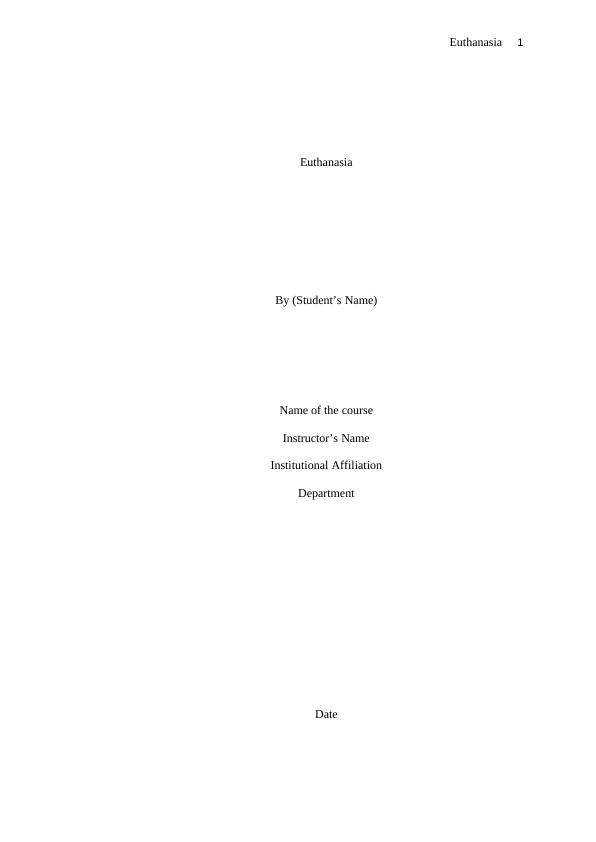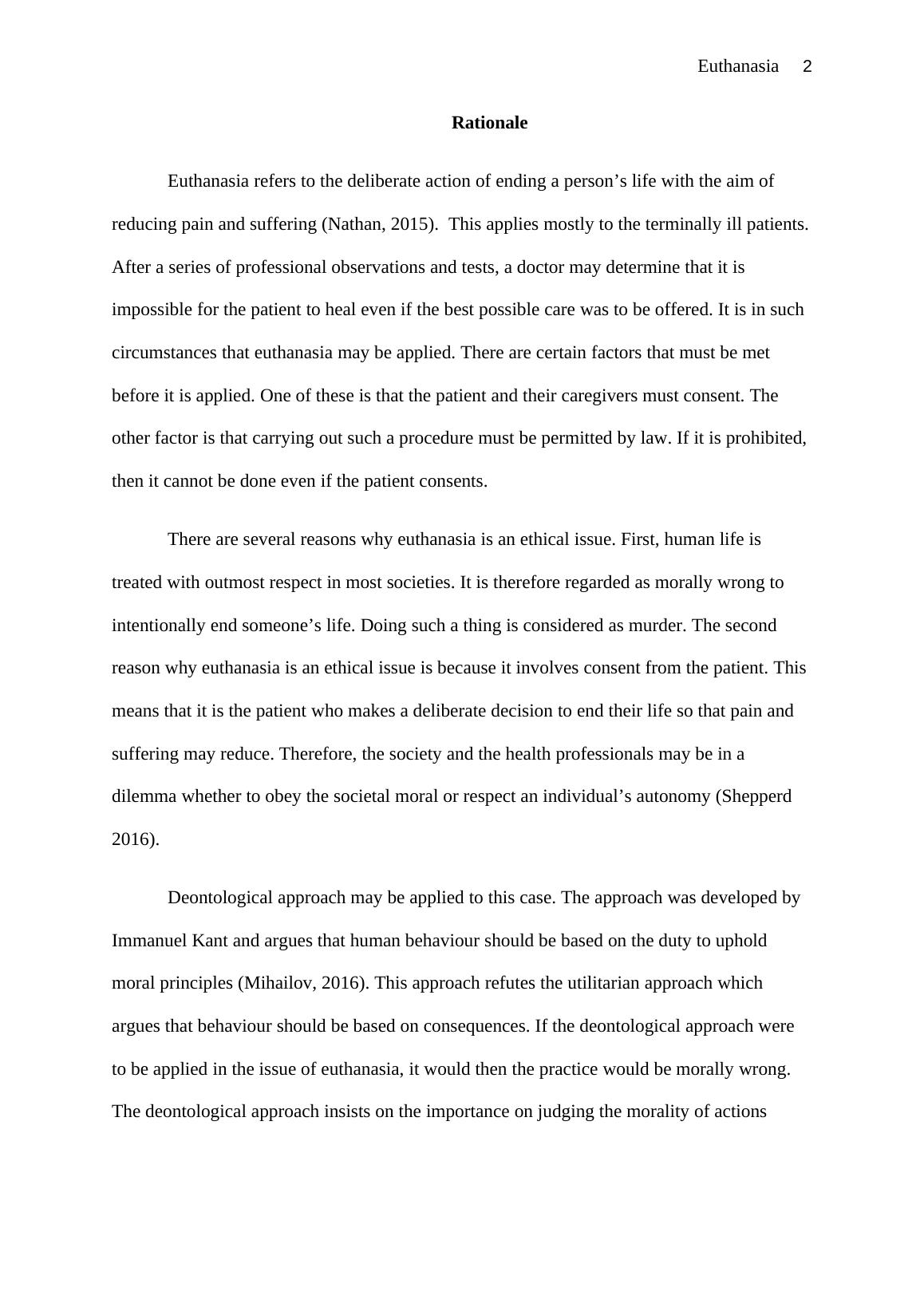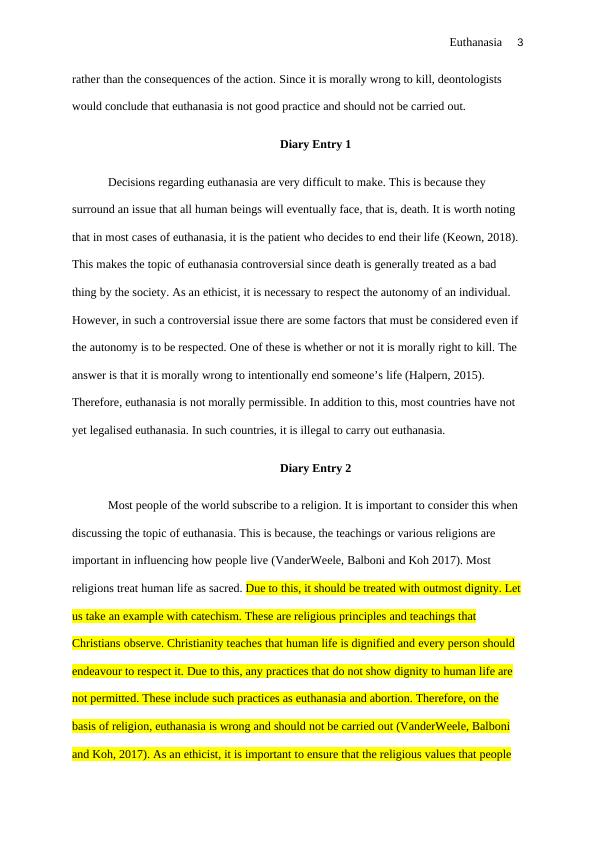Euthanasia: Ethical Issues and Approaches
6 Pages1497 Words84 Views
Added on 2023-01-12
About This Document
This document discusses the ethical issues surrounding euthanasia, including the importance of consent and the legality of the procedure. It explores the deontological approach to ethics and the role of religion in shaping opinions on euthanasia. The document also explains the different types of euthanasia and their moral implications.
Euthanasia: Ethical Issues and Approaches
Added on 2023-01-12
ShareRelated Documents
End of preview
Want to access all the pages? Upload your documents or become a member.
Assignment on Self Reflective
|3
|563
|38
Practice of Euthanasia | Report
|9
|2060
|23
(PDF) The basis of right to Self determination
|6
|3740
|86
Ethics in Health and Social Care: Philosophical Approach, Moral Principles, and Practical Issues
|8
|2071
|67
Ethical Issues Presentation: Mercy Killing
|10
|777
|79
Euthanasia: Practice, Debate, and Ethical Considerations
|5
|713
|114



